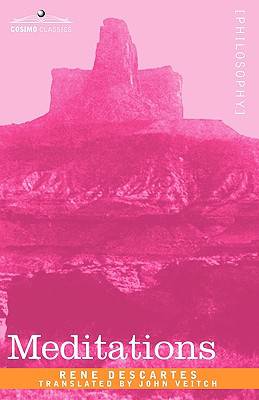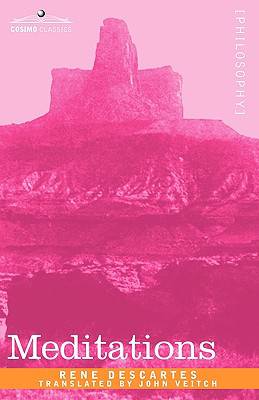
Bedankt voor het vertrouwen het afgelopen jaar! Om jou te bedanken bieden we GRATIS verzending (in België) aan op alles gedurende de hele maand januari.
- Afhalen na 1 uur in een winkel met voorraad
- In januari gratis thuislevering in België
- Ruim aanbod met 7 miljoen producten
Bedankt voor het vertrouwen het afgelopen jaar! Om jou te bedanken bieden we GRATIS verzending (in België) aan op alles gedurende de hele maand januari.
- Afhalen na 1 uur in een winkel met voorraad
- In januari gratis thuislevering in België
- Ruim aanbod met 7 miljoen producten
Zoeken
Omschrijving
I will now close my eyes, I will stop my ears, I will turn away my senses from their objects, I will even efface from my consciousness all the images of corporeal things; or at least, because this can hardly be accomplished, I will consider them as empty and false; and thus, holding converse only with myself, and closely examining my nature, I will endeavor to obtain by degrees a more intimate and familiar knowledge of myself. I am a thinking (conscious) thing... although the things which I perceive or imagine are perhaps nothing at all apart from me, I am nevertheless assured that those modes of consciousness which I call perceptions and imaginations, in as far only as they are modes of consciousness, exist in me. -from Meditation III: "Of God: That He Exists" Sometimes called the father of modern philosophy, French mathematician, scientist, and writer RENE DESCARTES (1596-1650) continues to have a deeply profound impact on our modern world. His thinking on how the mind works and what is it capable of has profoundly impacted our understanding of ourselves-he summed up his philosophy with the phrase "I think, therefore I am," which still thrills us-and his influence extends to our own experiments with modern computing and artificial intelligence. This concise discourse on doubt and the nature of truth was written in Latin and first published in 1641 with the subtitle In which the existence of God and the immortality of the soul are demonstrated. Here, Descartes considers: - Those Things That Can Be Called into Doubt - The Nature of the Human Mind: That It Is Better Known Than the Body - God, That He Exists - The True and the False - The Essence of Material Things - The Existence of Material Things, and the Real Distinction between Mind and Body Scottish poet, philosopher, and historian JOHN VEITCH (1829-1894) translated Meditations into English in 1852-this is a replica of the 1901 edition.
Specificaties
Betrokkenen
- Auteur(s):
- Vertaler(s):
- Uitgeverij:
Inhoud
- Aantal bladzijden:
- 128
- Taal:
- Engels
- Reeks:
Eigenschappen
- Productcode (EAN):
- 9781605205366
- Verschijningsdatum:
- 1/12/2008
- Uitvoering:
- Paperback
- Formaat:
- Trade paperback (VS)
- Afmetingen:
- 140 mm x 216 mm
- Gewicht:
- 172 g

Alleen bij Standaard Boekhandel
+ 27 punten op je klantenkaart van Standaard Boekhandel
Beoordelingen
We publiceren alleen reviews die voldoen aan de voorwaarden voor reviews. Bekijk onze voorwaarden voor reviews.









